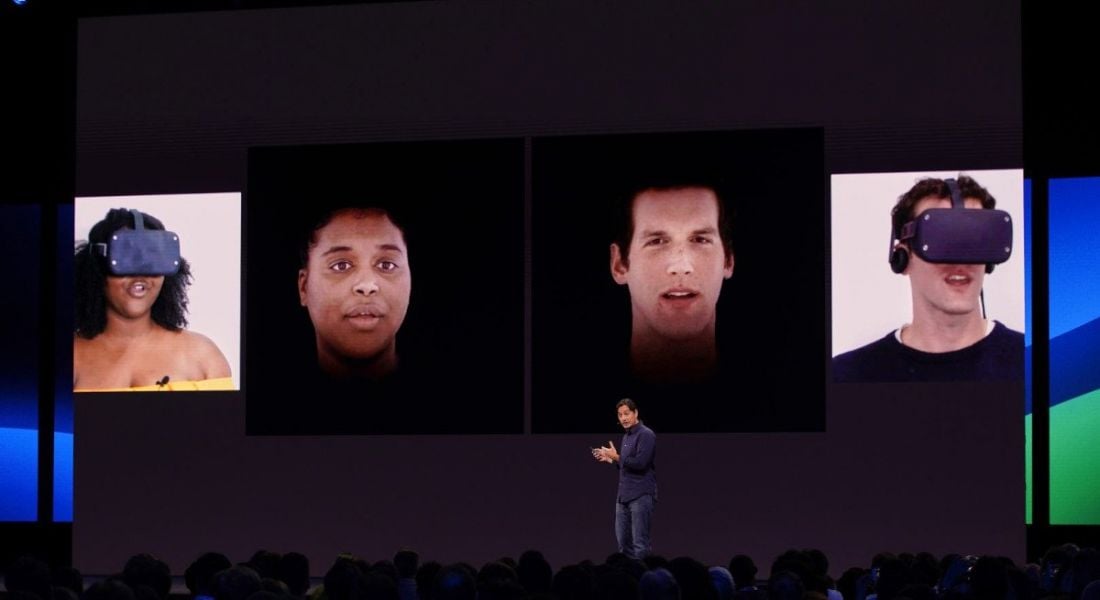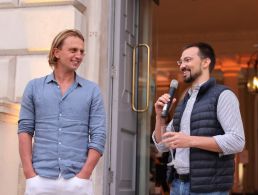Facebook’s AR and VR research teams in Cork are set to see an impact from the five-year recruitment plan announced by the tech giant.
Facebook has revealed plans to recruit 10,000 people for new high-skill jobs within the European Union over the next five years.
According to CNBC, recruitment will take place at Facebook bases in Ireland, Germany, France, Italy, Spain, Poland and the Netherlands.
This massive jobs announcement will see Facebook seeking out highly specialised engineers to realise CEO Mark Zuckerberg’s ambitious vision for a ‘metaverse’.
The metaverse has quickly become a buzzword across the tech sector following an address from Zuckerberg to Facebook employees this summer. Up to that point, the idea of an online network of connected through virtual and augmented reality experiences was chiefly touted by video-game makers.
Facebook, as the parent company of Oculus VR, is now setting out to bring VR and mixed reality technologies to other online interactions. For example, it recently revealed a platform called Horizon Workrooms, which enables remote workers to recreate an in-office experience through virtual reality.
A statement composed by Nick Clegg, Facebook’s VP for global affairs, and Javier Olivan, its VP of central products, noted that hiring engineers to build its metaverse is one of the company’s “most pressing priorities”.
“As Facebook continues to grow in Europe, we hope to invest more in its talent,” they said.
The Facebook VPs added that this investment marked “a vote of confidence in the strength of the European tech industry and the potential of European tech talent”.
The company already employs thousands of people in the EU. In 2015, Paris was selected as the site of Facebook’s first major AI research lab outside the US, while Cork in the west of Ireland is the site of one of the Facebook Reality Labs teams.
Facebook Reality Labs brings together an interdisciplinary team of research scientists, hardware product engineers, semiconductor technologists and more to work on next-generation AR and VR. The Cork site is led by Pádraig Hughes, former COO and head of engineering at InfiniLED, a Tyndall National Institute spin-out acquired by Facebook-owned Oculus in 2016. At the time, Facebook planned to use the Irish company’s low-power micro-LED technology and its entire team became employees of Oculus Research.
Jobs currently available at Facebook in Cork include roles in micro-LED chip technology, computer vision and AI research, and equipment safety.
“We have long believed that European talent is world-leading, which is why we have invested in it so heavily over the years,” said Clegg and Olivan in the company statement.
They cited the EU’s large consumer market, higher-education network and availability of talent as key reasons for this coming investment.
“Facebook is at the start of a journey to help build the next computing platform,” added Gareth Lambe, head of Facebook Ireland.
“Facebook Ireland has played an important role in our company’s growth and success to date. Today’s announcement is a commitment to grow in Ireland and across Europe and in our long-term investment in European talent to help build the metaverse.”
Don’t miss out on the knowledge you need to succeed. Sign up for the Daily Brief, Silicon Republic’s digest of need-to-know sci-tech news.




